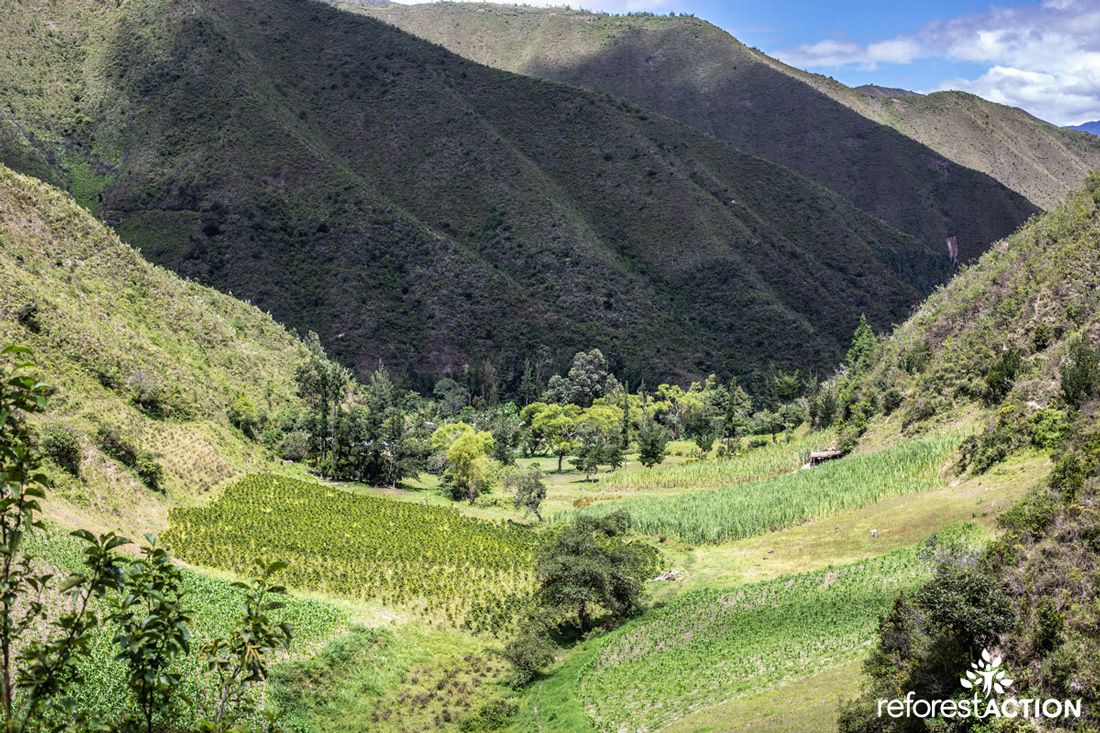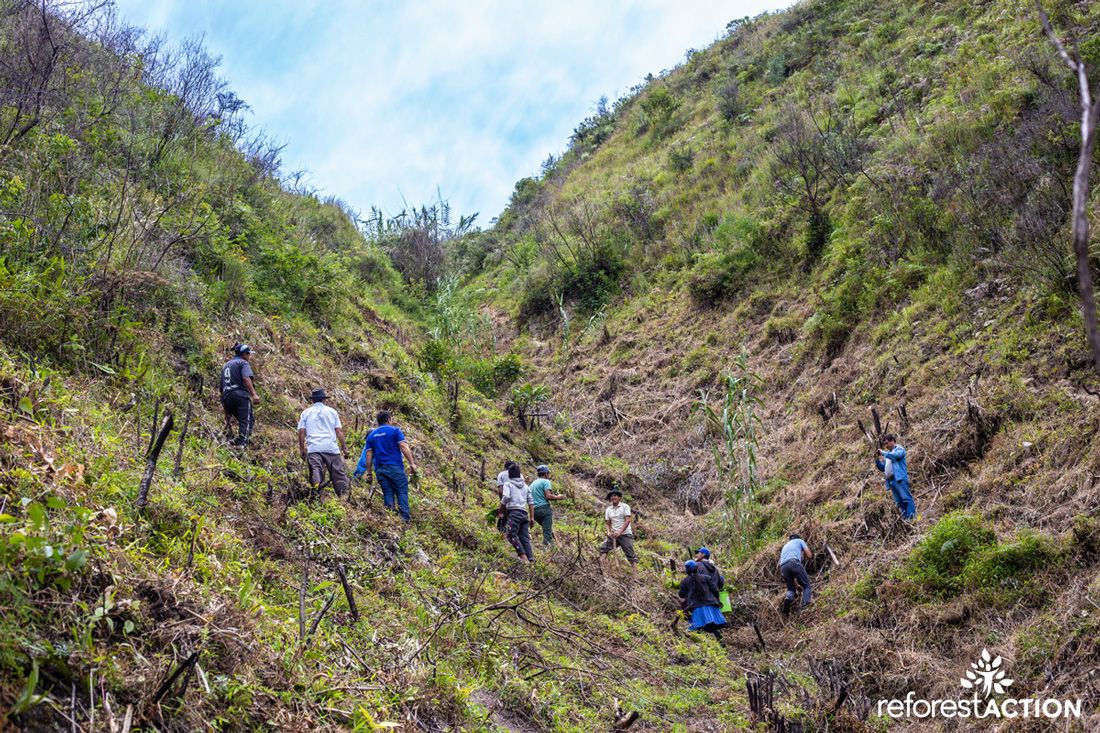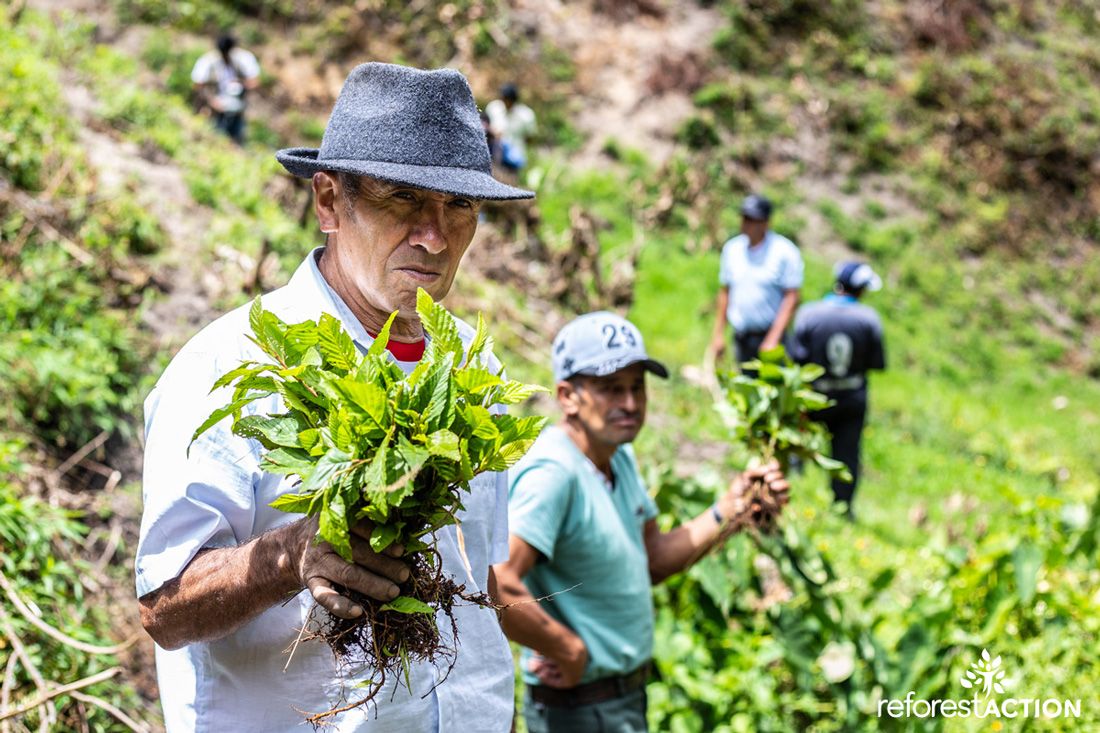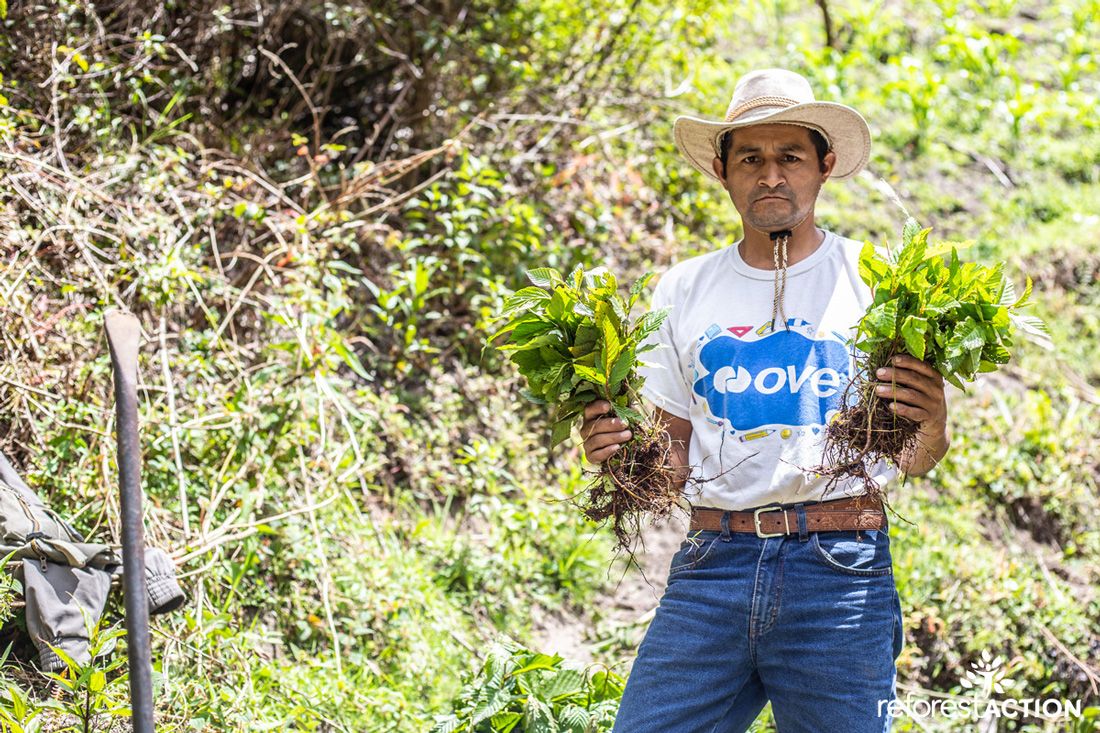Since 2019, Reforest'Action has been supporting the reforestation of the Piura region in Peru, affected by desertification and soil erosion. Carried out in the field for the local NGO Progreso, the project aims to recreate forests on the mountain ranges in order to restore their soils and biodiversity, but also to develop agroforestry with 800 local farmers. After a first planting season in 2020, the 2021 season will double the amount with 500,000 additional trees, bringing to one million the number of trees financed and planted within the framework of the project thanks to Reforest'Action's funding.

Trees for soil regeneration and water resources
The region of Piura, located in the north of Peru, is home to dry forests composed mainly of shrubby savannahs. The climate is extremely arid and local communities are affected by frequent water shortages. The dry soils on which the populations of breeders and farmers live are threatened by desertification. This is accelerated by illegal logging, which cuts down 3000 hectares of forest each year. In this context, Reforest'Action has partnered with the Peruvian NGO Progreso since 2019 to plant trees alongside local communities. The forests created will help limit soil erosion and create an additional source of income for the populations.
The objective for the 2020-2021 season is to create forests around and within 90 villages, located within the mountain ranges of the districts of Huarmaca, Pacaipampa, Sondor and Huancabamba. The trees are planted in the mountain ranges themselves, or in the cultivated fields of local bean, pea or watermelon producers. Created in the heart of the Piura River watershed, these forests will have a direct impact on the restoration of the region's ecosystems and on the protection of the water sources that supply the surrounding villages.

Environmental restoration: regenerating the dry forest of the Piura watershed
Cashew cedar, big-leaf mahogany and Andean alder are planted on mountain ranges in order to restore their soil and biodiversity; when mature, their wood, prized for its quality, will be exploited in a sustainable manner as timber and, through its sale, will generate additional income for farmers, who are currently suffering from the low yield of their crops.

Agroforestry: reconciling trees and food crops
The silver pine, valuable for soil restoration thanks to the thick mat of needles that forms at its feet and limits its erosion, is planted in agroforestry in the farmers' fields. This tree is also useful to break the wind and bring shade to the underlying crops. Eucalyptus saligna, a fast-growing species, allows villagers to obtain firewood from its branches while the tree continues to grow, and thus diverts local populations from cutting wood in the remaining forests.

Local communities integrated and made aware of the reforestation project
More than 800 families are now affiliated to the project and contribute to the planting and maintenance of the trees. Our partner Progreso offers them training in sustainable agriculture so that they can be made aware of the importance of preserving the planted trees, and achieve an autonomous development that respects their environment.
In June 2021, the planting of the 500,000 trees financed during the season is underway and will be completed in the coming weeks. Thereafter, Progreso will ensure the trees the best possible conditions for their growth and will continue to monitor their evolution over the next few years.